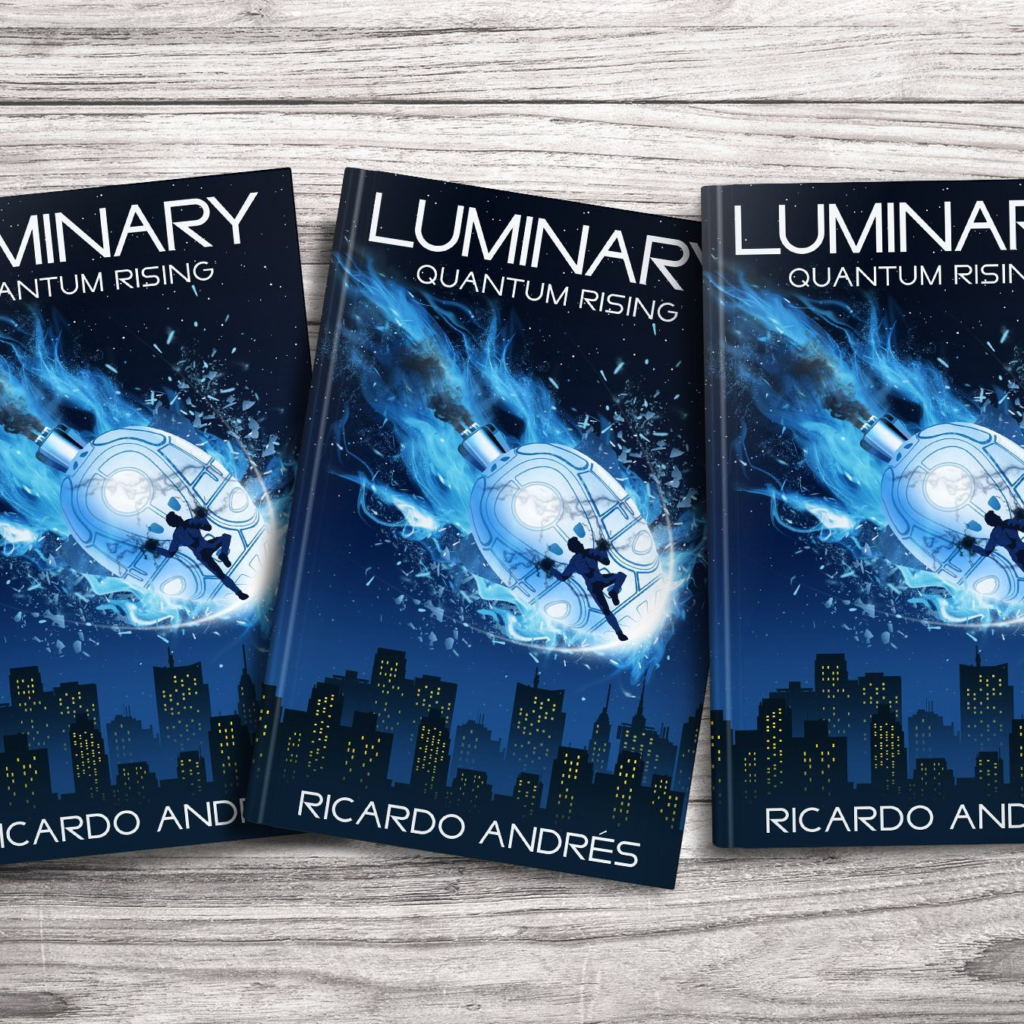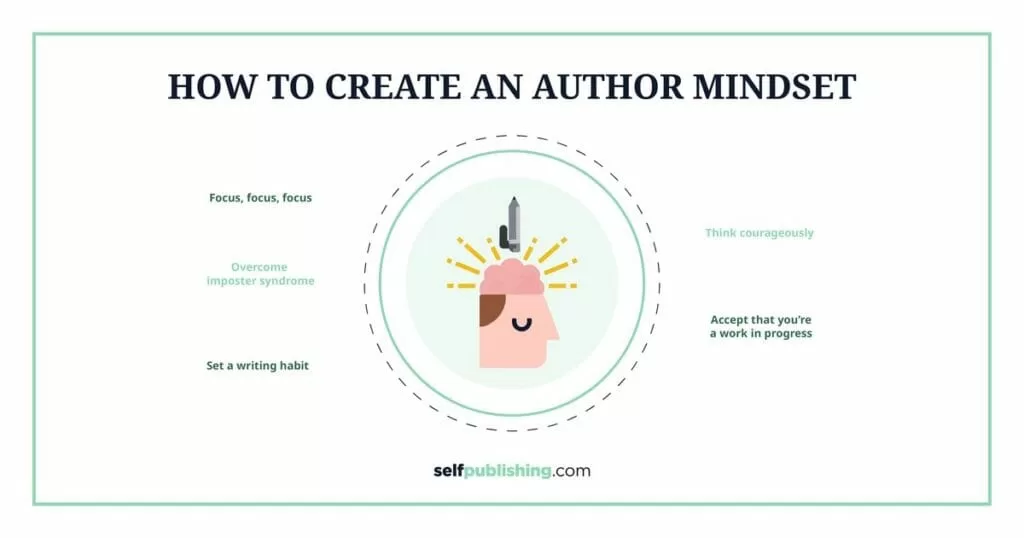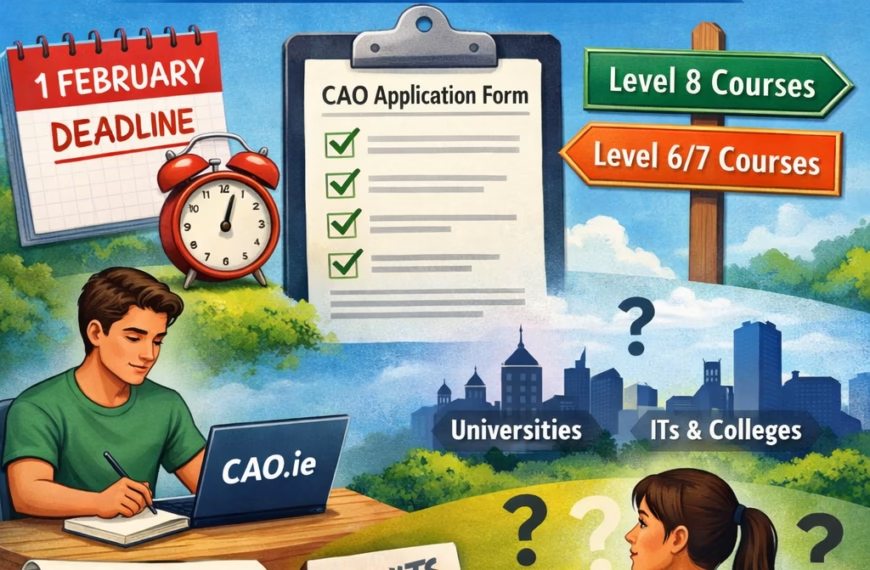So, you want to become an author and you don’t know where to start? Well, let me tell you that if you’re feeling overwhelmed with the amount of information online, and intimidated with the process of actually writing a book from start to finish, you’re not alone.
When I wrote my debut novel, I had no idea where to start. There was no ultimate guide to being an author that I could just follow and expect instant success. I did not know anyone who was a successful author that I could reference.
What’s worse, once I finished the novel and sent query letters to agents, I ended up with over one-hundred rejections. This devastated me, and I seriously considered giving up. But, to make a long story short, I could not imagine a life without authoring.
So, if you’re reading this, I’m going to deliver a guide to you that I wish I knew when I started.

My name is Ricardo Andrés, a YA sci-fi novelist who wrote and published Luminary: Quantum Rising. As a kid, I spent a lot of my time drawing characters that drew inspiration from Marvel and DC. I wanted to someday create a universe of my own, with individuals who have unique abilities, facing danger and saving innocent lives.
Just start somewhere
When I started Luminary: Quantum Rising, I had no idea what the story was going to be—how it was going to end—or what themes it was going to contain. As a matter of fact, I just knew that I wanted to write a story. I completely missed the part of outlining the story.
My first piece of advice is to find the balance between over outlining your story and under outlining your story. If you are one of those writers who drafts maps, draws characters, and spends their afternoons researching medieval castles in Scotland to draw inspiration for a Romance-Fantasy—I caution you to not over do it. I

I’ve met with several authors who coil themselves in the minute details that they never consider the big picture. What’s the big picture? A story! If you have an idea of your protagonist and antagonist, a setting, and a genre, then start writing! The fine details will come later. But remember to always write, especially with the mindset that your first draft is never going to be your most perfect.
Just start. Don’t wait until everything seems perfect, because it never will. A half-finished story is a work in progress. A story that hasn’t even started is nothing.
You are not the best – accept it
When I started querying agents about my complete novel (which essentially means I send them a formal letter introducing myself and my novel, and asking if they would represent me), I was asked continuously to compare my novels to other pieces of work.
I wrote a contemporary sci-fi about an alien who comes to Earth to fight shape-shifters. When I had to compare the novel to other pieces of work, I was completely lost. One mistake I quickly fell into was viewing my novel from the eyes of a book-seller. My work was my work, and during the writing process, I reminded myself that my story was going to be unique.

Inspiration first, inspire next
I drew inspiration from Star Wars, and Marvel/DC, but the mistake I had made was to not read more books along the genre that I was writing. If you have an idea of what sort of novel you are writing, I highly encourage you to read novels that fall in the same category.
Let’s say that I was writing Fantasy. I would start by reading novels like Harry Potter, Eragon, and the Fourth Wing. But the most important part is not reading the novel, but analyzing it. What worked for them—why did the book sell—what character arcs were present that I could draw inspiration in my novel. Essentially, familiarize yourself with the genre that you are writing, so you feel like you have a pad if you ever feel writer’s block.
How to publish your work?
Lastly, for those wondering what happens after the writing process, I have some advice that would hopefully help.
Let’s assume that you mounted the rugged terrain of novel-writing, and you have a three-hundred page manuscript of a complete crime novel on your laptop. What do you do? Who do you send it to? I would first suggest giving the traditional publishing route a try.
This requires you to draft a query letter, send it to agents that represent your novel’s genre, and hope that you have an interested agent to represent you. If you receive one, then together, you and them will repeat a similar process by contacting publishing houses and hope that they pick up your novel. The upside is that if all goes well, you are in the hands of a publishing company that will pay you upfront, print and publish your work, and get your foot in the door to become an author. The downside is that these companies only care if your novel is selling.
Oh, and they own the rights to the novel. Now if this is unappealing, consider the route I took, self-publishing. This route means that you are your own boss and all the money you make goes to you (it’s actually a 70 percent royalty for you, but that depends on the self-publishing company you use).

The downside is that no one is going to pick up your novel and hand you the success. You have to do all the work. The nice thing is that the self-publishing route makes it a lot easier to publish a novel. There are many resources online that can help you with marketing your novel. And, you own your own rights—so you never need to stress if a publishing company one day calls you and tells you to change the protagonist’s gender, or make the villain more sexy, or whatever ridiculousness they think sells these days.
Helpful resources
One online course that is totally free that I recommend to authors wanting to successfully market their novel is Starting from Zero by David Gaughran.
Lastly, I recommend putting your book on Amazon’s Kindle-Direct Publishing (KDP) and IngramSpark (for international book sellers). That way, your novel is in the two major publishing outlets so that any store can purchase the novel.
Final thoughts
My last words of advice would be this: relax. You are never going to get the novel right the first time—and just like anything in life, your book is going to require lots of time and effort until it is complete, and that is totally normal. Yet, if you enjoy authoring, and see yourself holding a copy of your novel someday, then there is no reason to give up.
I would love to hear your thoughts on my article, and if you feel like I’ve missed something, feel free to contact me at ricardoandres@ricardo-andres.com Also, make sure to check out my website: ricardo-andres.com and buy my debut nove – Luminary: Quantum Rising
Post Disclaimer
The information contained in this post is for general information purposes only. The information is provided by How to become an author? and while we endeavour to keep the information up to date and correct, we make no representations or warranties of any kind, express or implied, about the completeness, accuracy, reliability, suitability or availability with respect to the website or the information, products, services, or related graphics contained on the post for any purpose.



